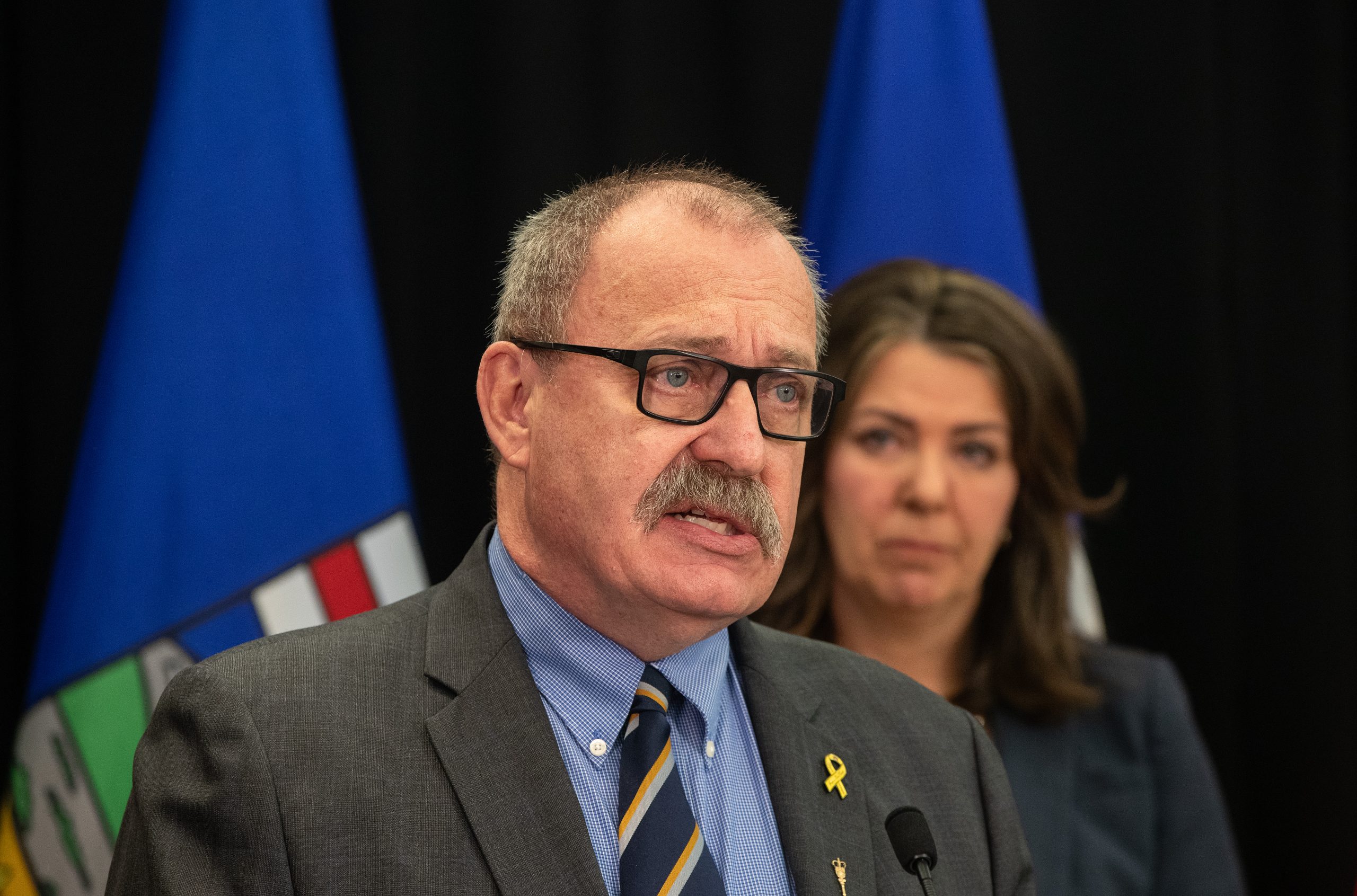
The organization that speaks for Alberta’s rural municipalities says amendments proposed this week by Premier Danielle Smith’s government won’t fix a flawed bill that grants the province unchecked power.
Paul McLaughlin, head of the Rural Municipalities of Alberta, said he’s frustrated the changes won’t stop the province from intruding in the authority of local governments.
“Are you just asserting dominance? What’s the point?” McLaughlin said in an interview.
The bill was introduced by Municipal Affairs Minister Ric McIver on April 25.
It granted Smith’s cabinet the ability to fire councillors and overturn bylaws if cabinet deemed it in the public interest.
RELATED:
That sweeping authority was heavily criticized by local leaders, prompting McIver to introduce amendments Thursday.
The amendments would still allow cabinet to begin the process to fire a local official if deemed to be in the public interest, but the decision would have to be ratified in a recall vote.
Also under the amendments, Smith’s cabinet could still overturn bylaws but only those that go against the Constitution, step outside legal municipal jurisdiction or are contrary to a provincial policy.
McIver said the changes are about providing clarity and were informed by feedback from municipalities.
McLaughlin said with no clear definitions of the public interest or provincial policy, the proposed law could be used to justify cabinet interference for nearly any reason.
“You’ve empowered a future monster,” he said.
“I don’t know who the future monster is, but you’ve inadvertently armed these folks with the largest baseball bat you can imagine.”
The government has maintained that the provincial powers aren’t new but simply expedite existing rules and are only to be used in exceptional circumstances.
On Wednesday, Edmonton-area Opposition New Democrat MLA Marlin Schmidt warned Smith’s United Conservative backbenchers that if they want to take over running municipalities, they will be bombarded with local grievances, from complaints about potholes to grass maintenance.
McLaughlin, whose rural members come from predominantly conservative ridings, agreed.
“This government has created 1-800-hate-my-councillor. They’re going to be inundated,” he said.
McLaughlin said the change will also encourage existing conspiracy theories about who is really pulling the strings on local issues like land use planning.
“It has turned into crazy town, and you just gave crazy town one of the biggest positive nudges you could ever give them,” he said.
Alberta Municipalities, the organization that represents towns, cities and villages, have also attacked the amendments.
Alberta Municipalities president Tyler Gandam said proposed changes won’t assuage local leaders worried the legislation is an undemocratic overreach.